Furious residents have criticised John Lewis‘s plans to build hundreds of new flats in their town, insisting they are ‘already overwhelmed with plush new tower blocks and gridlocked streets’.
Locals in the commuter town of Reading, Berkshire, have hit back at the retail giant’s latest proposal to turn a former distribution warehouse located in the heart of the town centre into high-quality rental homes.
While they had initially submitted a planning application for 215 homes at a cost of £80million, these have since been scaled back to 170 dwellings in an eight-storey-high apartment block.
If approved, the flats are set to be located opposite the large Oracle shopping centre nearby the train station. Offering a quick service to London, it acts as the third busiest station in the south east of England.
But the controversial build has prompted concerns amongst locals who argue that an influx of new residents will put pressure on local amenities, including doctor’s surgeries, dentists and schools.
Lucy Marti, 44, who has lived locally for 20 years, told MailOnline that she fears the town will be unable to cope with the new flats, arguing that the number of new-builds is ‘getting out of hand’.
Stating that she believes Reading is ‘becoming a town of residential developments and barely anything else’, she added: ‘It’s crazy because we are now lacking good retailers, and restaurants are going, and yet we’ve got a gazillion flats that are on the market and aren’t selling.
‘The schools, the GP’s, the dentists are just not going to be able to cope. You only have to go on Rightmove to see how many flats there are to rent in the town and round every corner you see a new block going up so we just don’t need any more.
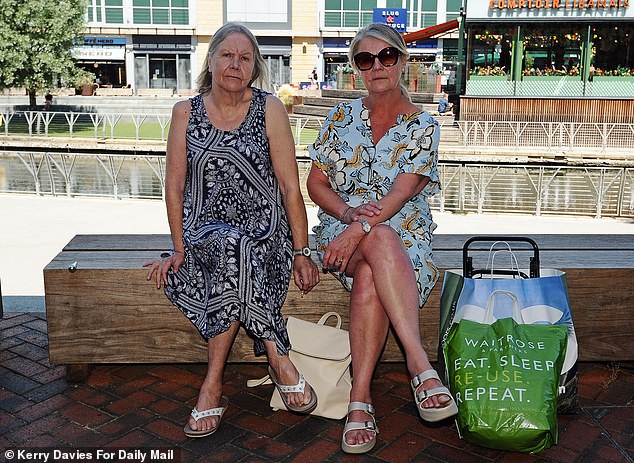
Furious residents in Reading, Berkshire, have criticised John Lewis’s plans to build hundreds of new flats in their town, insisting they are ‘already overwhelmed with plush new tower blocks and gridlocked streets’ (Pictured: local residents Marion Walsh and Susan James)
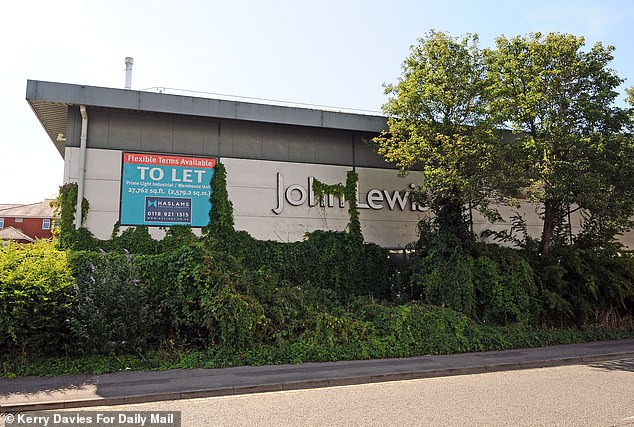
While John Lewis Partnership had initially submitted a planning application for 215 homes at a cost of £80million, these have since been scaled back to 170 dwellings in an eight-storey-high apartment block. Pictured: the John Lewis building set to be developed into flats
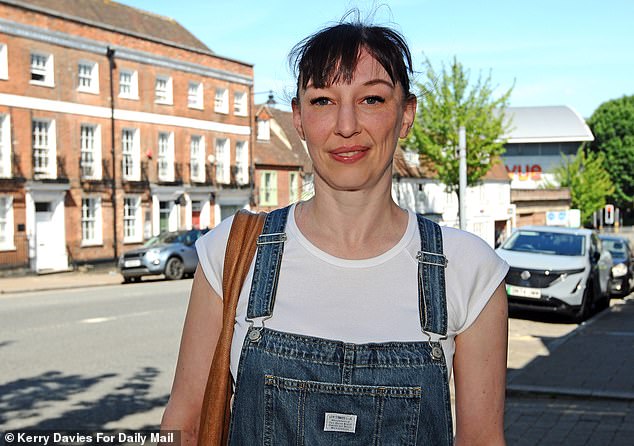
Lucy Marti (pictured), 44, who has lived locally for 20 years, told MailOnline that she fears the town will be unable to cope with the new flats, arguing that the number of new-builds is ‘getting out of hand’
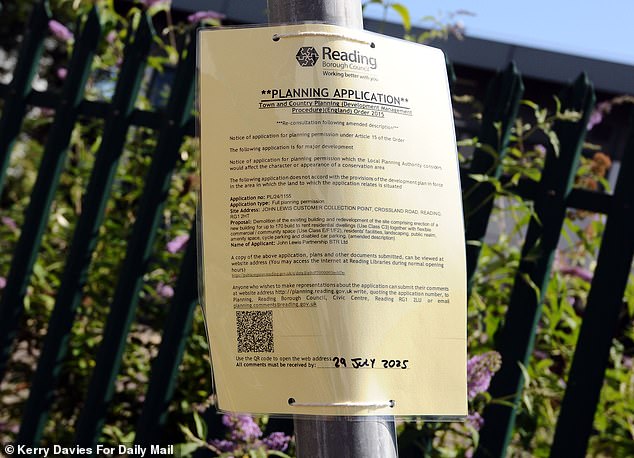
If approved, the flats are set to be located opposite the large Oracle shopping centre nearby the train station. Offering a quick service to London , it acts as the third busiest station in the South East
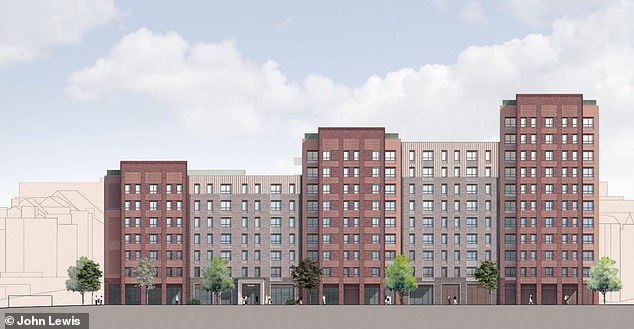
The controversial proposal (pictured) has prompted concerns amongst locals who argue that an influx of new residents will put pressure on local amenities, including doctor’s surgeries, dentists and schools
‘I think we have got to over-saturation now and useful services are disappearing. It’s going to be a town of flats and houses. It’s a real shame there are things the town needs and flats isn’t one of them.’
Meanwhile, Marion Walsh, who also resides in Reading, described the proposed new development as ‘mad’, adding: ‘Wherever you look now, its flats. It never use to be like that, that’s all you hear about now’.
Sarah Reseigh, who lives nearby to the site of the proposed new development, insisted that an increase in residents would merely worsen the already ‘nightmare’ parking situation.
Adding that the once ‘bustling’ town of more than 174,000 people had now become ‘dead’, with many shops forced to close, Ms Reseigh said: ‘It seems like every time they are building something it’s not new amenities, it’s flats, so there are just far too many people living in a small space and there are no new facilities.
‘Trying to find anywhere to park during the day is a nightmare. It would be nice to see some better facilities coming as a pose to piling more people in.
‘I appreciate there is a lot of money to be made in rent but you need to attract the people here as well because it’s making people leave.’
Nearby resident Tomas Iski said he was already concerned about the significant degree of noise pollution and local traffic, believing that this would only worsen with more people moving into the area.
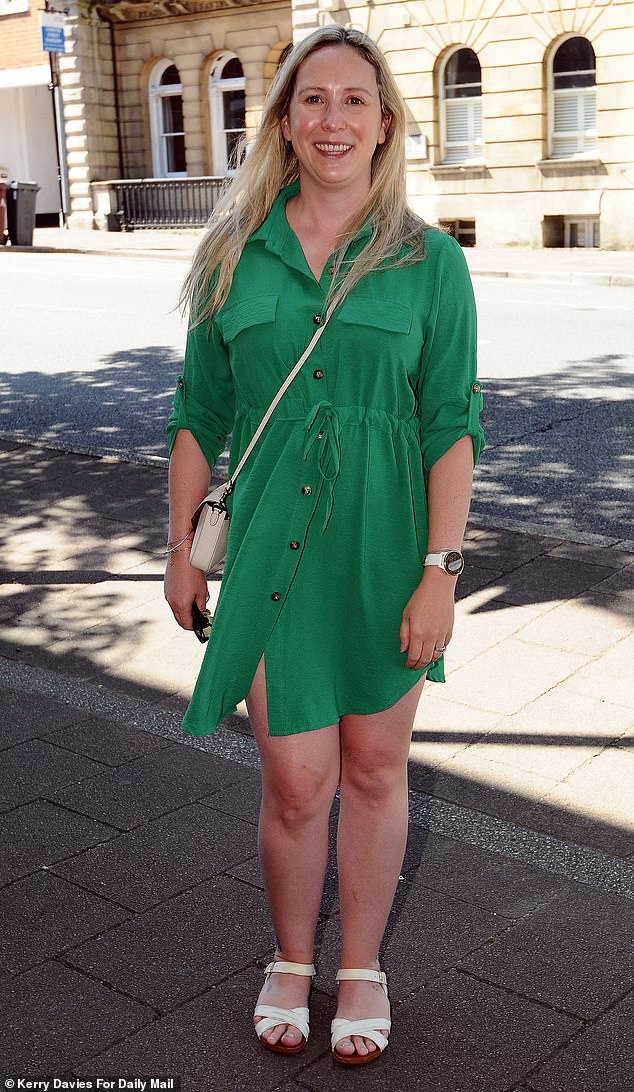
Sarah Reseigh, who lives nearby to the site of the proposed new development, insisted that an increase in residents would merely worsen the already ‘nightmare’ parking situation
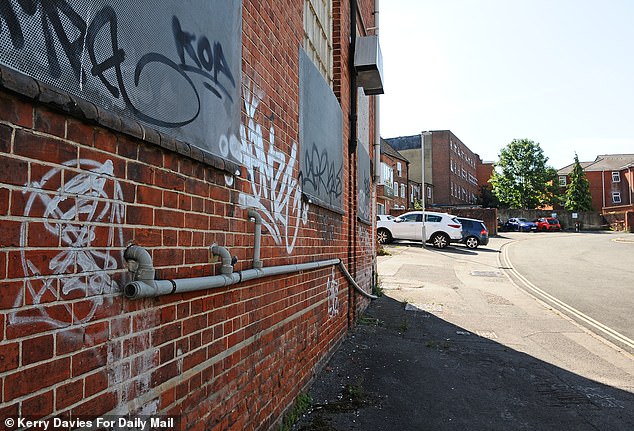
Ms Reseigh argued that the once ‘bustling’ town of Reading, with a population of more than 174,000 people, had now become ‘dead’, with many shops forced to close
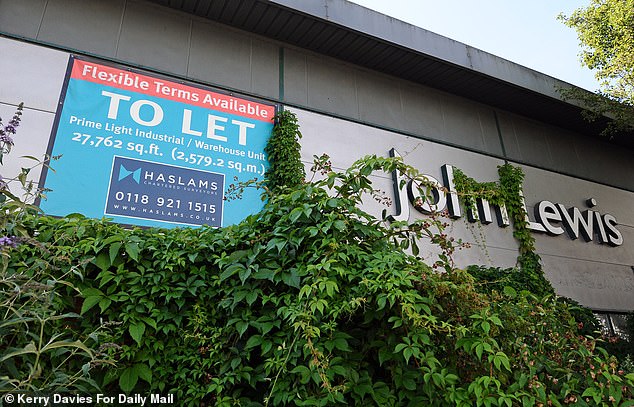
John Lewis’s decision to scale back their initial plans come after NHS officials recently warned that the plans risked overwhelming local GP surgeries
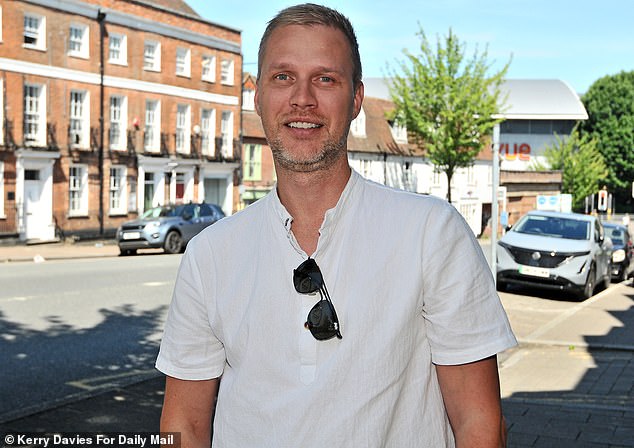
Tomas Iski said he was already concerned about the significant degree of noise pollution and local traffic, believing that this would only get worse with more people moving into the area. He also added that he ‘does not think it’s necessary to build more flats’
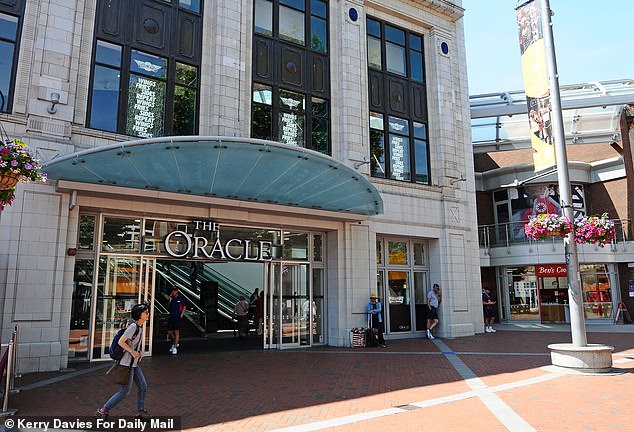
If approved, the flats are set to be located opposite the large Oracle shopping centre (pictured) nearby the train station. Offering a quick service to London , it acts as the third busiest station in the South East
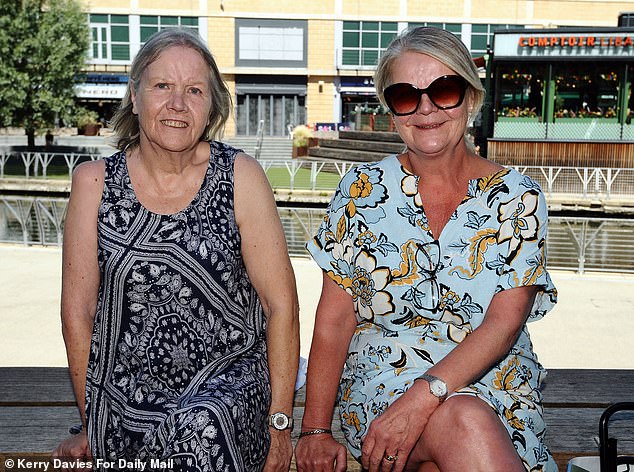
Marion Walsh (right) described the proposed new development as ‘mad’, adding: ‘Wherever you look now, its flats. It never use to be like that, that’s all you hear about now’
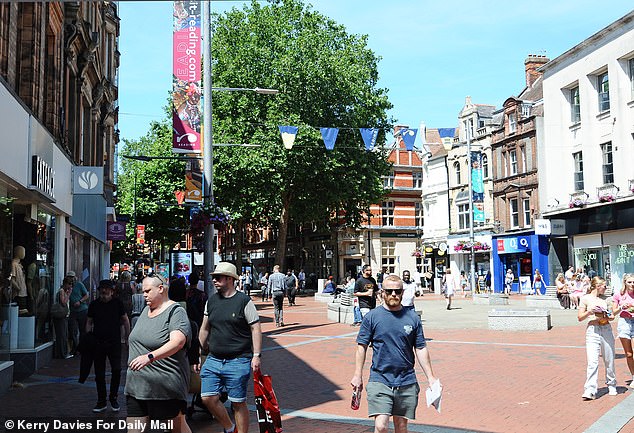
The Buckinghamshire, Oxfordshire and Berkshire West Integrated Care Board (BOB ICB), the NHS’ body responsible for running local hospital trusts, previously insisted that nearby GP practices in Reading were already existing at a state of over capacity
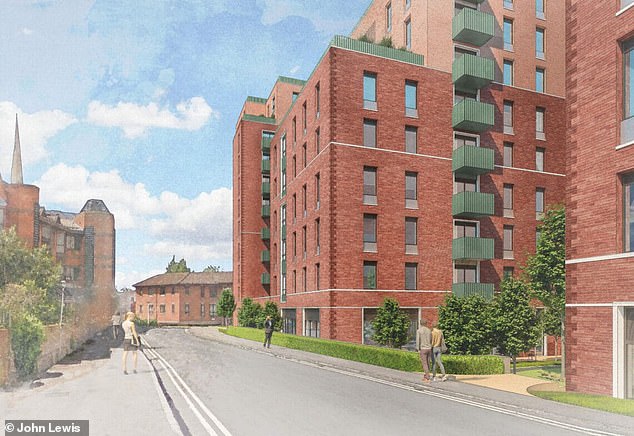
Pictured: a plan of the contested development set to be built in the commuter town of Reading
He also added that he ‘does not think it’s necessary to build more flats there as they are already building flats at other locations in the town.’
Mr Iski’s fears were also echoed by 58-year-old Tracey Foster, who said that she was ‘worried that there would be more traffic’ and that the construction will have impacts on ‘all the amenities’.
Susan James, who also lives nearby, said that the ensuing ‘nightmare’ of trying to get a GP appointment would only be intensified if a vast number of new residents were to move into the already over-populate town.
She added: ‘The GP’s are already a nightmare to get an appointment now anyway and if more people move in it is only going to get worse.’
John Lewis’s decision to scale back their initial plans come after NHS officials recently warned that the plans risked overwhelming local GP surgeries.
The health service’s stark opposition was outlined in a letter to local planning officials, which said: ‘None of the GP practices in the local area would have the capacity to accommodate new patients generated from the proposed development.’
The Buckinghamshire, Oxfordshire and Berkshire West Integrated Care Board (BOB ICB), the NHS’ body responsible for running local hospital trusts, insisted that nearby GP practices were already existing at a state of over capacity.
The public body added that while it had secured a site for a new healthcare facility near to the development, it required an extra £185,000 in order to open the site.
Discussions remain ongoing between John Lewis and officials to potentially obtain this funding.
The housing project is one of three being pursued by John Lewis Partnership (JLP). It has received planning permission to transform a Waitrose site in Bromley, south London into 353 flats and for creating 428 homes in West Ealing.
A decision regarding the construction is expected from the planning committee later this year. If approved, building could start as early as January next year, with the first residents moving in by 2028.
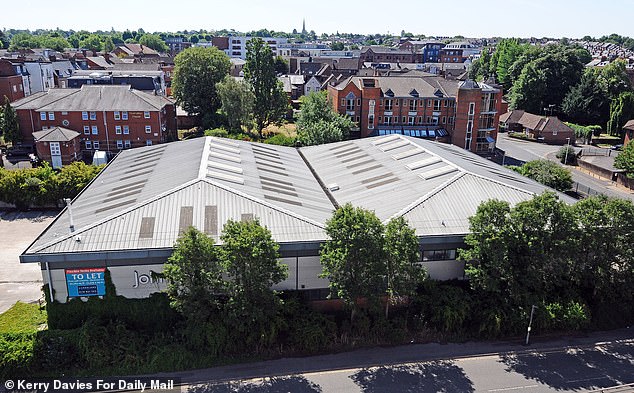
A decision regarding the construction is expected from the planning committee later this year. If approved, building could start as early as January next year, with the first residents moving in by 2028
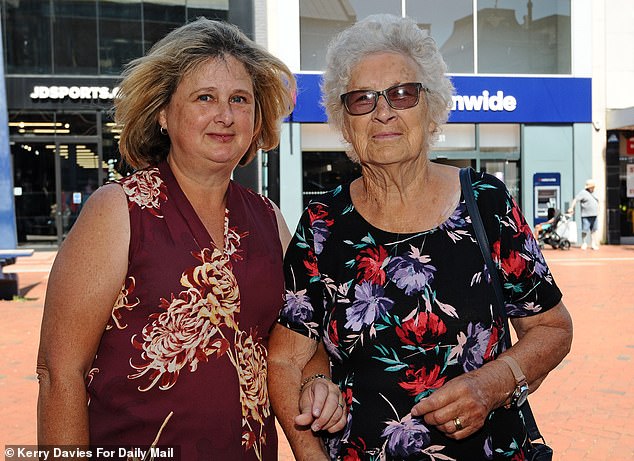
58-year-old Tracey Foster (pictured with her mother Wendy Griffiths, 85) echoed other residents concerns, adding that she was ‘worried that there will be more traffic’ and that it ‘will affect all the amenities’
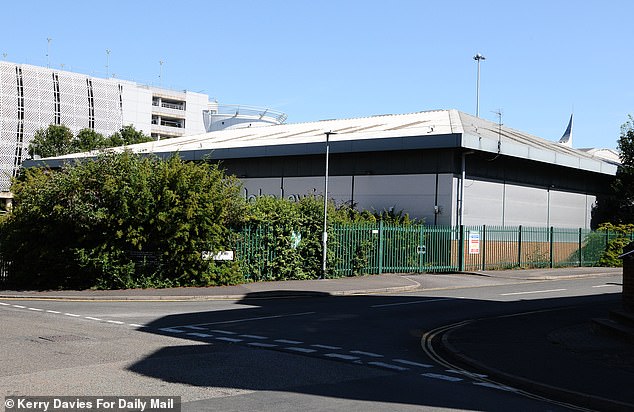
The housing project is one of three being pursued by John Lewis. It has received planning permission to transform a Waitrose site in Bromley, south London into 353 flats and for creating 428 homes in West Ealing
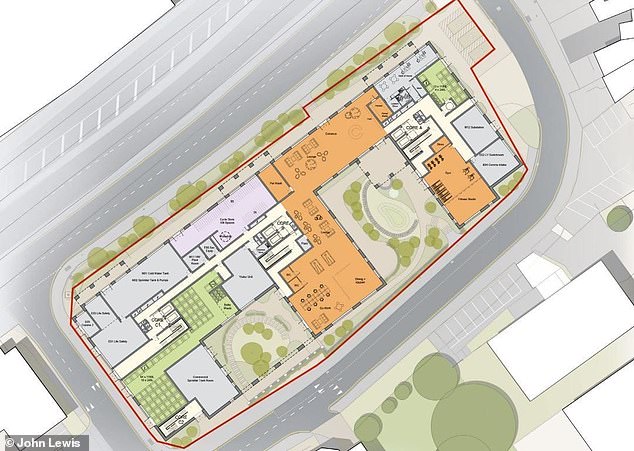
A spokesperson for JLP previously said: ‘Our priority is ensuring our proposals directly support the local community.’ Pictured: the proposed floorplan for the new development
A spokesperson for JLP previously said: ‘Our priority is ensuring our proposals directly support the local community.’
A Reading Council spokesperson said: ‘The clear route for this type of contribution is through Section 106 (S106) legal agreements, which require a developer to make a contribution towards mitigating an increase in demand for a service that would come from occupiers in their development.
‘The Council is regularly lobbied on the topic of local healthcare facilities and there are very recent examples of applications which require an obligation for NHS contributions locally through 106.
‘For example, a recent development on the former Reading golf course saw a £550,000 contribution paid towards local healthcare, and the S106 planning agreement for the Broad Street Mall development in the town centre seeks a contribution of £450,000 in healthcare contributions to help to provide for a GP surgery within the existing Broad Street Mall.
‘Taken together, the two contributions total £1 million towards local healthcare services.
‘In this instance, we are aware of the request from NHS and are working with the applicant to achieve the right outcome for Reading and its residents, which may include additional funding to help meet identified public health needs in the area
Katherine Russell, Director of Build-To-Rent for the JLP, said: ‘We’ve been proud to be part of the Reading community for over 50 years, so it’s very important to us that we deliver the best possible scheme and one that benefits the community.
‘If these plans are approved, we will create much-needed high-quality rental homes, a green, community space for the people of Reading and local jobs. We thank Reading Borough Council and local community groups for their input.”
A spokesperson for the partnership said: ‘Having been a committed part of the Reading community for 50 years, our priority is ensuring our proposals directly support the local community.
‘As part of our discussions with the council we will agree the payment which councils normally receive from developments to fund local services and infrastructure.
‘We are in ongoing discussions with the council about this and welcome all feedback.’












